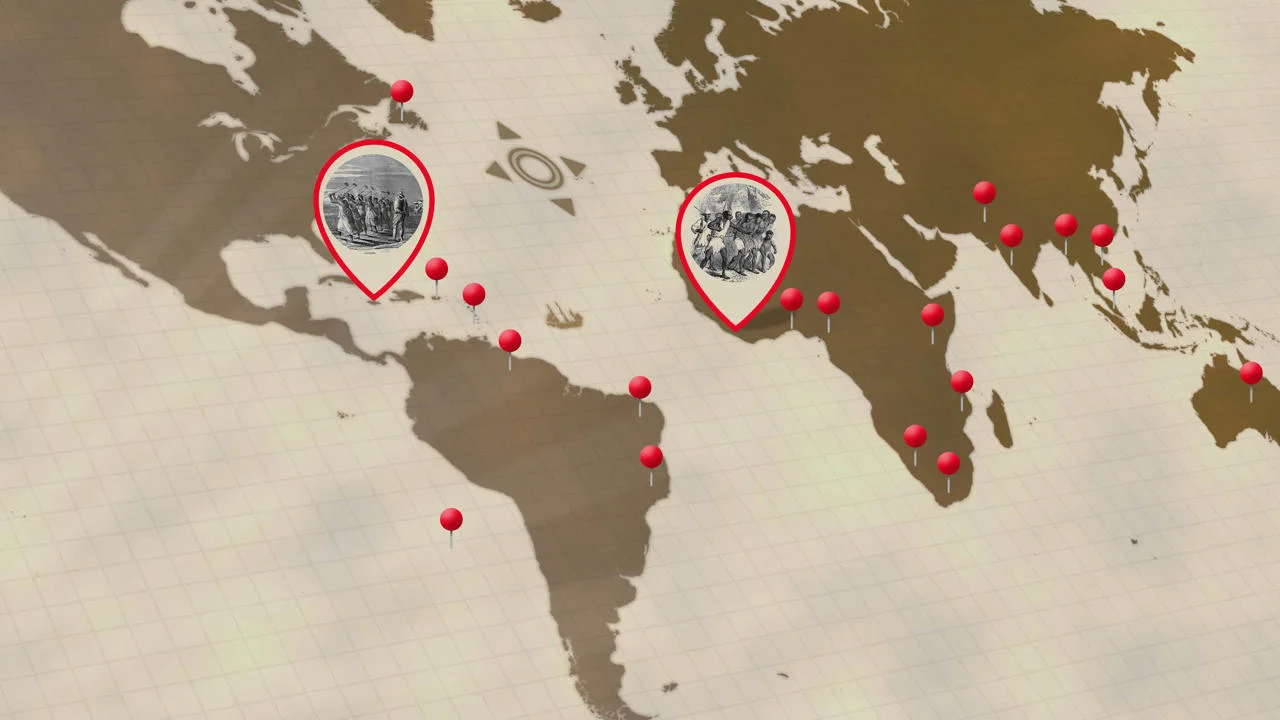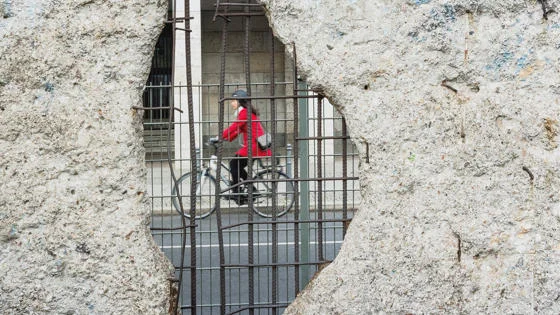Studying historical inequality can help us combat injustice for future generations

Contents
What can life in a Caribbean slave plantation society in the 18th century teach us about inequality today?
A great deal, according to Dr Stefania Galli, a Research Fellow in the Department of Economic History at LSE. Dr Galli’s work examines the relationship between institutions and inequality in colonial and former colonial societies in Africa and the Americas.
"Understanding the mechanisms behind inequality is vital, especially today, as we live in an increasingly unequal society. Studying historical inequality helps us understand how past institutional set-ups may affect long-term outcomes, and goes some way to explaining why inequality and underdevelopment lingers on for decades and centuries," she says.
It has been tricky addressing the fact that in slave plantation societies, slaves were both property and owners of property in a negative sense – that is to say, they did not own even themselves.
Growing up during the 2007/08 financial crisis and witnessing the rise in poverty resulting from the coronavirus pandemic, Dr Galli believes inequality is something that we need to understand much more deeply for the sake of future generations. "We have yet to understand exactly how inequality grows, declines and develops. By studying historical inequality, we have the ability to see if our hypotheses about it today were fulfilled in the past."
Levels of inequality in the early colonial period: Sierra Leone as a case study
Dr Galli’s work previously involved analysing levels of inequality in rural Sierra Leone in the early colonial period. Former research suggested the colony was established under highly egalitarian ideals, making it an interesting case study. Using newly unearthed census data, Dr Galli set out to discover whether these ideals were reflected in the actual distribution of wealth in the country.
She found they were. Sierra Leone exhibited one of the most equal distributions of wealth so far estimated for any preindustrial rural society. This work on Sierra Leone highlights how ideals can shape the institutions that can then drive inequality.
After studying wealth distribution in a notoriously egalitarian country, the next area of interest for Dr Galli was to study wealth distribution in a notoriously unequal society.
As a result, her current work involves using archival data to examine household inequality in former slave plantation societies in the West Indies. "The popular perception is that these societies were extremely unequal but there is actually very little academic research to date to back up this conclusion. I’m aiming to fill this evidence gap," she explains.
The challenges of studying inequality in an era of slave ownership
Even today, we see that certain groups are excluded... not because of educational choices but because of discrimination.
Studying household inequality in a society where most of the population did not have an income has not been straightforward. To combat this, instead of looking at household income, Dr Galli has been studying what people owned. However, this too, has caused some methodological issues.
"It has been tricky addressing the fact that in slave plantation societies, slaves were both property and owners of property in a negative sense – that is to say, they did not own even themselves. It is important to my work that we ensure that slaves can be accounted for as individuals," says Dr Galli.
Her early findings have revealed that inequality between households in slave plantation societies is among the highest calculated so far. However, it is on a par with estimates from areas in Latin America, as well as some cities in the northern part of the US, where slavery did not exist at the time.
"It would seem that despite being far less segregated and obviously discriminatory, societies that were deemed free experienced similar levels of inequality as slave plantation societies." Dr Galli attributes these results to the fact there are institutions in the northern part of the US and in areas of Latin America that fostered great levels of inequality. These societies may not have practiced slavery, she explains, but as the overriding attitudes of the time were racist/discriminatory, their governing institutions nevertheless replicated the inequalities found in slave plantation societies.
"Formal institutions like the government, administrative organisations and guilds impact how society redistributes resources and opportunities. In essence, they can determine who is ‘in’ and who is ‘out’, which has major repercussions for inequality," she says.
"Even today, we see that certain groups are excluded or tend to be less likely to access certain types of occupations, for example. Not because of educational choices but because of discrimination. This is bad, not only because it affects individuals but because it also has an economic impact. If we want to continue growing, we need to exploit all the resources we have and that includes ensuring everyone’s talents are exploited to the fullest."
Going forwards, Dr Galli wants her research to continue to highlight the importance of considering and acknowledging societal values and beliefs in the discussion over inequality. "It something which is often overlooked and yet it is of major relevance," she says.
Dr Stefania Galli was speaking to Charlotte Kelloway, Media Relations Manager at LSE.
Download a PDF version of this article




